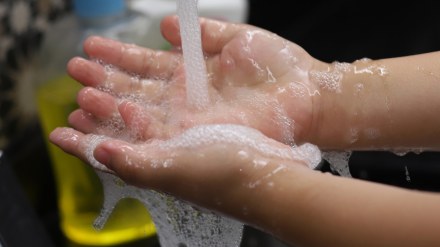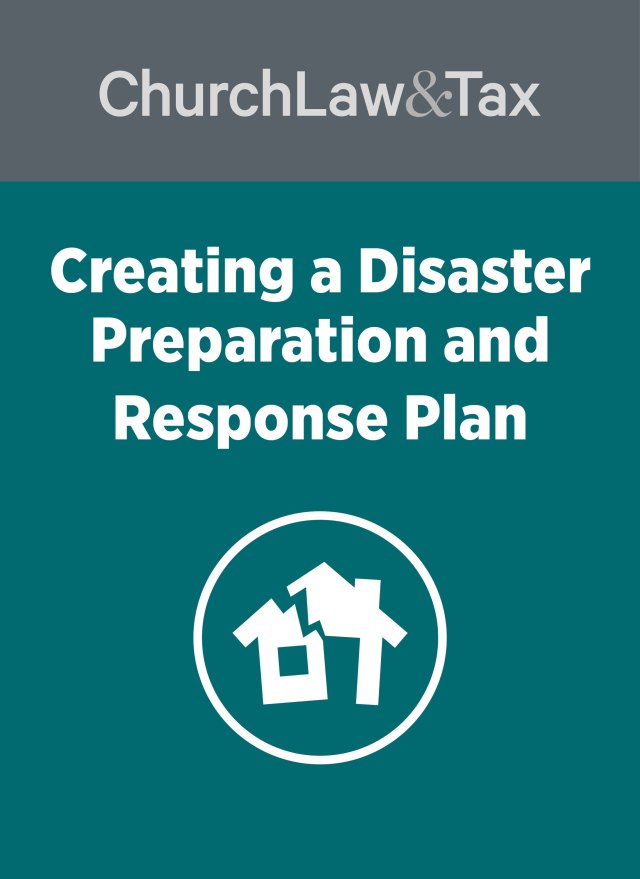There are many ways churches can respond to the COVID-19 (coronavirus) outbreak to love our neighbors, to prevent infection, and to demonstrate a Kingdom perspective. As both a medical professional and a church leader, I have firsthand knowledge of the best ways churches can do this. I am an infection preventionist at a large Midwestern hospital, working with epidemiologists and other healthcare providers on the current COVID-19 outbreak. I am also a worship leader at a nearby church, where my husband serves as lead pastor.
What we know so far
The global pandemic is spreading rapidly across the United States. This virus is difficult to stop because many infected people display no symptoms but may still carry and spread it. Infectious disease experts are still learning about how easily the virus spreads. Contracting the virus by touching the same surfaces as others (such as door knobs) appears to be a low, but still-present, risk. Being around someone infected who coughs or sneezes is a high risk.
Churches must grapple with both the low- and high-risk possibilities, whether it’s in regard to meeting as a church, keeping a church office open, or stepping into the community to serve as needs expand throughout this outbreak.
Mirror the policies of public schools
During the early part of the outbreak, my church considered asking anyone over the age of 60—as well as anyone with compromised immune systems—to remain home for their own protection. As one Sunday approached, one member in her 70s told me she would most certainly be at church—and she would continue attending each week as long as our church met. Another woman I talked to had been told that the virus was not spread by person-to-person contact. Both conversations offered opportunities for me to provide health education to my beloved church family, but they also showed me the risk of continuing to hold church services at all.
We still met as a church. But soon after, the local public health department reduced its recommended guidance for gatherings to groups of 10 or fewer people, and the local public school system announced all schools were canceled for at least four weeks.
At that point we followed suit and stopped meeting as a church. It’s a common practice for churches to follow the policies of the public schools in their area. This is because the public schools are agencies of the state. If churches align their policies with those of the state, it is unlikely any action will be later found to be liable or negligent. For instance, our church has the same cancellation policy as the public school, meaning if the schools have a snow day on a Wednesday, we cancel our Wednesday night services. The COVID-19 outbreak is another example where churches should follow the recommendations of legal and public health authorities: cancel church when public schools cancel.
Churches providing supplies to those in need
Most people now have had a “potential exposure” to a positive COVID-19 patient, since the virus is present and growing in numbers throughout the country. Still, this should not stop churches from dropping off supplies and meals to those in need.
Here are some tips for serving during this crisis:
-
Make certain anyone preparing and delivering supplies have had no COVID-19 symptoms (new onset of fever, cough, shortness of breath, or body aches).
-
Require leaders and volunteers to wash hands frequently when preparing and delivering supplies.
-
Deliver bags of supplies to the front porch or front door to lower exposure and interaction. Note that any conversations that occur will ideally keep leaders and volunteers outside of the house or apartment, and with at least six feet of distance between everyone after ensuring no one has had COVID-19 symptoms. Ask everyone to cover any coughs or sneezes with the inside of their elbow.
-
Use the same practices (no symptoms, frequent hand-washing, and six feet of distance between people) if your church chooses to distribute supplies from its building or parking lot to people in need.
If your church continues to meet
While recommendations and guidance from local public health departments continue to change daily, and many more places are adopting recommendations or restrictions like the one my area recently embraced, there are still communities around the country that have not yet implemented shelter-in-place restrictions or asked large groups not to meet. It may be just a matter of time before these communities follow the practices the majority of the country is now following, but in the event your church is located in one that hasn’t, I still advise your church not to meet, given the contagious nature of this virus.
However, if your leaders decide to still meet physically, implement the following practices I adopted when our church still met:
-
Instruct greeters to direct all congregants arriving for church to the bathroom to wash their hands. Post signs that read, “Please wash your hands before entering the sanctuary.” Consider keeping entrances locked from the outside that do not have close proximity to a bathroom. (If hand sanitizer is available, that could work as well.)
-
Encourage congregants to space out where they sit, if your church’s seating arrangement allows.
-
Perform a handwashing demonstration during announcements. At my church, I brought kids on stage with me to do the handwashing motions, and I asked the congregation to practice the motions with us.
-
Remove the time for “meet-and-greet” or handshaking. Instruct the congregation to refrain from all physical touching (shaking hands, hugging, and even elbow touching, because that is where people cough).
-
Instruct congregants to walk to a collection plate or designated place to collect offering to avoid multiple people touching the same item.
-
Instruct congregants to walk to the front of the church to receive communion. When we were still meeting, two communion servers wearing gloves distributed the elements. Each congregant was asked to hold their hand flat and one communion server dropped the bread into their open hand. The other communion server placed an individual communion cup on a table in front of them, and the congregant who received the communion picked up the cup. Alternatively, if individual communion cups are not an option, distributing only the bread would be fitting.
-
Remove prayer partners or time when congregants and leaders and pastors typically pray in close proximity. Instead, ask congregants with prayer needs to raise their hands and stay seated, with the congregation then praying about the needs represented.
Churches canceling services
If your church has canceled services, I encourage you to do what our church has done over the past few weeks, including:
-
Increasing your social media presence. Post Scriptures, videos of pastoral encouragement, and short devotionals.
-
Streaming your services online, if you are able.
-
Asking pastoral staff, board members, deacons, or other church leaders to call your church family to check on them and pray with them.
-
Asking your music pastor or worship team to record songs for your congregants on CDs and/or to post on social media. (Note: Be sure you abide by music copyright law.)
-
Encouraging your church family to check in on each other, call each other, and share supplies.
-
Getting creative about this time of solitude. Quarantining can be a spiritual practice for those with extra free time. That time can be used to read the Bible more and pray more.
If you must cancel services, please know that, as a medical professional, I commend your efforts to help control the spread of COVID-19. Each person who stays home is helping to reduce the spread of this virus.
Holly Hammar Lear is a PhD prepared nurse and public health official. She also serves as a worship leader and her husband is the lead pastor of Resurrection Assembly of God in Iowa City, Iowa.





